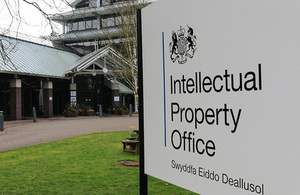Intellectual Property: Kwickscreen
At first glance, the Kwickscreen may look like a simple screen but this innovative invention contains an array of intellectual property.

Background
Denis Anscomb, Director of Kwickscreen, met his business partner Michael Korn in 2007. Michael was a product designer and studying at the Royal College of Art. He had already invented a prototype for the Kwickscreen which he then introduced to Denis.
The Kwickscreen is a two meter high portable screen. It can extend to three and a half meters wide or retract inside itself into a small vertical compartment. It is made from a special material which can be manipulated into an ‘L’ shape, making it perfect for dividing spaces. This is particularly useful in hospitals where space and private areas are limited. With this in mind, Michael designed the screen so it could be adapted for different situations; opaque for privacy, translucent, or clear for observation.
Seeing the marketable potential, Denis and Michael went into business and Kwickscreen was born.
Protecting their IP
Michael already had a basic knowledge of intellectual property (IP) through college. They had close links with IP attorneys and a designated innovation department. As such, Denis and Michael decided to register their IP before putting the product on the market, to protect their hard work and investment.
Denis said:
It would be very annoying if someone were to copy our work and pass it off as their idea. Our business is important to us, as we built it from nothing and all our wealth is tied up in it.
With the assistance of an IP attorney, Kwickscreen are now the owners of a UK patent, a registered design and a registered trade mark. The screens are currently being sold to the National Health Service (NHS) to help isolate infected patients and improve privacy and dignity.
Benefits
Denis believes protecting their IP has made Kwickscreen more reputable as a business and a product. It has also enabled him to build partnerships with world-renowned organisations such as the NHS.
It has improved our perception with business partners and given us something more solid. As we add to our intellectual property portfolio, we are building the value of the business.
However, in the early years when funds were tight and they were uncertain if the product would be successful, Denis and Michael debated whether to renew their patent. Thankfully, the patent box scheme enables businesses to apply a lower rate of corporation tax to any profits earned from their patent. This encouraged them to renew and they are now reaping the benefits financially as well as reputationally.
Although Kwickscreen are still a small business, Denis and Michael are confident that their IP is properly protected as the business grows.
Denis explained:
The product is quite hard to make and the market is still relatively small. Therefore, companies with the know-how and the capital to replicate it would not yet be interested as there’s not enough money in it. Hopefully in the future, as demand for the product grows, we can be assured our assets are protected from such companies’.
In the future, Denis and Michael plan to introduce different versions of the Kwickscreen for different markets. They also intend to target the US market more robustly.